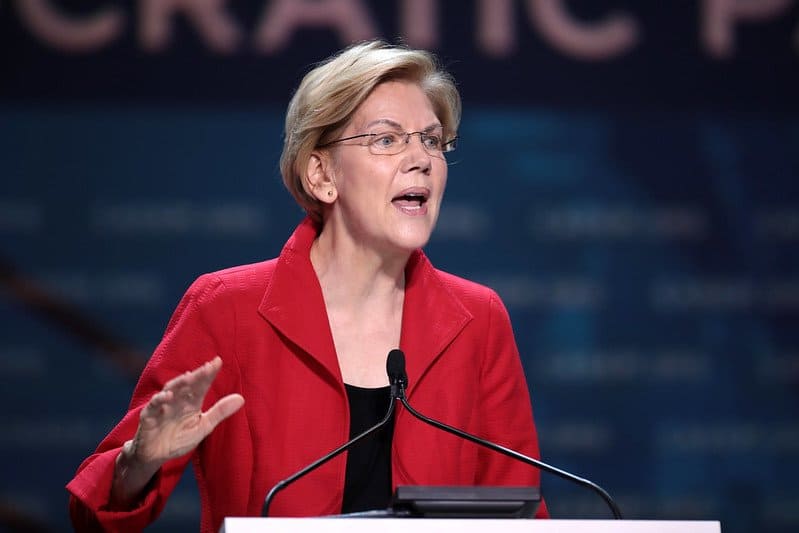
Ryan Gorman is a student at Harvard Law School.
Tomorrow’s Democratic presidential primary debate, scheduled to take place at Loyola Marymount University, will go on as planned after university workers reached a deal with Sodexo. Unite Here Local 11, the union representing roughly 150 campus cooks, dishwashers, and cashiers at Loyola Marymount, announced yesterday that Sodexo had agreed to a tentative contract Monday night, following last-minute pressure from Democratic presidential candidates and the personal involvement of Democratic National Committee Chair Tom Perez. Annie reported over the weekend on the candidates’ plans to boycott the debate if the labor dispute wasn’t resolved in time. As Annie noted, Senator Elizabeth Warren kicked off the boycott, saying that she would not attend the event if it meant crossing the picket line. Other candidates who have qualified for the debate (and some who have failed to qualify) quickly followed the senator’s lead. Warren attended the Unite Here Local 11 press conference yesterday to celebrate the announcement of the deal. The episode is the latest example of how Democratic candidates – notably Senators Elizabeth Warren and Bernie Sanders – are using their campaigns to raise awareness about labor issues across the country. Meanwhile, candidate Pete Buttigieg – who joined the chorus of candidates announcing their intention to boycott the debate – continues to face scrutiny for his prior work with McKinsey & Company, where (among other things) he was possibly part of a team who suggested the United States Postal Service replace their unionized workers with non-union labor at retail stores such as Staples. But the candidates shouldn’t carry the whole story: the workers and organizers of Unite Here Local 11 deserve praise as well.
On Monday, the National Labor Relations Board (NLRB) overruled an Obama-era decision that had protected employees’ ability to use company email to engage in discussion protected by Section 7 of the National Labor Relations Act (NLRA). In overruling the 2014 Purple Communications opinion, the Board held, in a split decision, that employees had no right to use employer-owned email to engage in protected activity. Face-to-face communication, long protected under the NLRA, purportedly provides an adequate avenue for employees to exercise their Section 7 rights, obviating the need for a right to employer-provided email systems. That said, the Board left open the possibility that, in “rare” cases, employer email systems may provide the only reasonable means for employees to communicate with each other, thus necessitating protection under the NLRA. Yana Calou and Michelle Miller wrote earlier this year for OnLabor about Google’s attempts to challenge Purple Communications.
Meanwhile, an employee at Google claims that she was fired for sending internal notifications informing company employees of their labor rights. Kathryn Spiers was a data security engineer at Google who would send the company’s employees informational pop-ups when they visited certain websites. After Google hired an anti-union consulting firm to help address (or curb) employee activism within the company, Spiers circulated pop-ups to remind Google employees that certain concerted activities were protected by law. Google has apparently acknowledged that Spiers was fired for this “misuse” of the company’s security tools. Spiers joins four other recently terminated Google employees who have filed complaints with the NLRB.
Yesterday, Congressman Ro Khanna introduced a bill to study the impact that the recently passed FOSTA-SESTA legislation has had on sex workers. FOSTA-SESTA refers to the pair of bills passed by the Senate and the House last year aimed at curbing sex trafficking. Critics of FOSTA-SESTA have pointed out that the legislation makes it more difficult for sex workers to screen their clients online, thus putting their safety at risk. Khanna’s proposed legislation is supported in the Senate by Elizabeth Warren and Bernie Sanders. Khanna hopes the proposed bill is the first step towards repealing FOSTA-SESTA and possibly decriminalizing sex work.
The National Basketball Players Association (NBPA) is having discussions with the NBA’s developmental G League about unionizing the league’s players. The G League is the official minor league organization of the NBA. The president of the G League has expressed his support for the players’ right to unionize. Any collective bargaining that would follow unionization would focus on player salaries, benefits, and travel expenses. According to the New York Times – via reporting from The Athletic – base G League player salaries in 2018 were around $35,000.






Daily News & Commentary
Start your day with our roundup of the latest labor developments. See all
February 17
San Francisco teachers’ strike ends; EEOC releases new guidance on telework; NFL must litigate discrimination and retaliation claims.
February 16
BLS releases jobs data; ILO hosts conference on child labor.
February 15
The Office of Personnel Management directs federal agencies to terminate their collective bargaining agreements, and Indian farmworkers engage in a one-day strike to protest a trade deal with the United States.
February 13
Sex workers in Nevada fight to become the nation’s first to unionize; industry groups push NLRB to establish a more business-friendly test for independent contractor status; and UFCW launches an anti-AI price setting in grocery store campaign.
February 12
Teamsters sue UPS over buyout program; flight attendants and pilots call for leadership change at American Airlines; and Argentina considers major labor reforms despite forceful opposition.
February 11
Hollywood begins negotiations for a new labor agreement with writers and actors; the EEOC launches an investigation into Nike’s DEI programs and potential discrimination against white workers; and Mayor Mamdani circulates a memo regarding the city’s Economic Development Corporation.